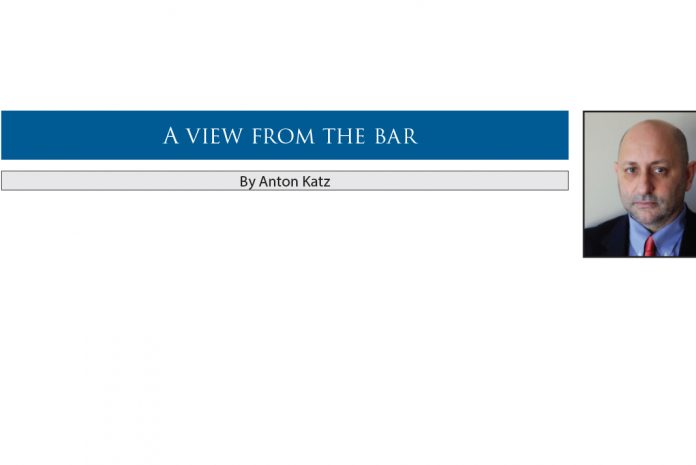President Trump’s taunts at racial and religious minorities are constitutionally protected forms of speech under the First Amendment to the US Constitution.
Hateful speech that is illegal in Canada and Europe, such as racial slurs, brazen bias, and Holocaust denial, is permitted in the US. The mailing of pipe bombs and the killing of Pittsburgh Tree of Life congregants are said to have been, if not directly caused by Trump, at least enabled by his tweeted words. Would Trump’s rhetoric be permitted and/or prohibited under the South African Constitution?
American democracy is based on the idea that one can combat evil expression with education, argument, and evidence rather than censorship. But South African history is so different to the United States. The South African Constitutional Court has commented: “The United States constitution stands as a monument to the vision and the libertarian aspirations of the Founding Fathers; and the First Amendment in particular to the values endorsed by all who cherish freedom. But they paint eighteenth century revolutionary insights in broad, bold strokes. The language is simple, terse and direct, the injunctions unqualified and the style peremptory. Our Constitution is a wholly different kind of instrument.”
The South African Constitution has three foundational values: human dignity, equality and freedom. The right to freedom of expression does not automatically trump the right to human dignity. The right to dignity is as worthy of protection as is the right to freedom of expression. Freedom of expression does not enjoy superior status in our law. The pluralism and broadmindedness that is central to an open and democratic society can, however, be undermined by speech which seriously threatens democratic pluralism itself.
So, when the following words are published online may a South African court sanction the publisher? (trigger warning for sensitive readers)
“I want to cleans this country of all white people. we must act as Hitler did to the Jews. I don’t believe any more that the is a large number of not so racist white people. I’m starting to be sceptical even of those within out Movement of the ANC. I will from today unfriend all white people I have as friends from today u must be put under the same blanket as any other racist white because secretly u all are a bunch of racist fuck heads. as we have already seen.” [sic]
Noo seriously though u oppressed us when u were a minority and then manje u call us monkeys and we suppose to let it slide. white people in South Africa deserve to be hacked and killed like Jews. U have the same venom moss. look at Palestine. noo u must be bushed alive and skinned and your off springs used as garden fertiliser.” [sic]
(Velaphi Khumalo January 2016)
The High and Equality Court rejected the explanation as to why the comments were made. The explanation included a weak apology, a promise not to make such utterances again; and that they were made in a state of anger and agitation reacting to Penny Sparrow’s Facebook reference to Black people as monkeys.
The Equality Court stated: “South African society is, manifestly, a community that exhibits significant social strains in which, amongst other social distinctions, we are marked off and categorised by race and personal appearance. A significant inter-racial tension exists, derived from several circumstances, not least from inequality and the persistence of some degree of inter-racial hostility. This unhappy and regrettable condition is our historical legacy. The Constitution has proclaimed that we recognise the fractured character of our community and set about transforming our society towards a goal that unequivocally repudiates inter-racial hostility so that we may build a nation upon a consensus that every South African deserves dignity and that our whole community, through sharing resources and through respect for one another, can experience social cohesion.”
“Different laws in other countries frame the debate about values and policy differently because, not only are their statutory provisions different to ours, but their value choices are often different too. In Germany and France it is a crime to question the occurrence of the holocaust, yet in the USA neo-Nazis may freely parade their swastikas deliberately through predominantly Jewish neighbourhoods or threaten revenge if the state does not stop the so-called oppression of Whites. Those societies frame laws to address their social circumstances as do we. The ‘othering’ of whites or any other racial identity, is inconsistent with South African’s constitutional values. These utterances, in as much as they, with dramatic allusions to the holocaust, set out a rationale to repudiate whites as unworthy and that they ought deservedly to be hounded out, marginalised, repudiated, and subjected to violence in the eyes of a reasonable reader, could indeed, be construed to incite the causation of harm in the form of reactions by Blacks to endorse those attitudes, reactions by Whites to demoralisation and rachet up the invective by responding in like manner, and thus by such developments, on a large enough scale, derail the transformation of South African Society.”
The Court declared the comments to be hate speech, issued an interdict against repeated utterances, ordered a written apology to South Africans, and required the prosecuting authority to consider a prosecution.
It has been persuasively argued that the murder of the first Jew forced into a gas chamber commenced years before Jews were demonised in the media and in politics. The Rwandan genocide commenced when politicians started calling Tutsis cockroaches, and called for their extermination. Some were jailed for long periods for such ‘speech.’
Freedom of speech is vital to any decent society. But decent societies also require mutual tolerance and respect for every individual. Each society and members of communities must at all times strive to achieve that tough balance.











